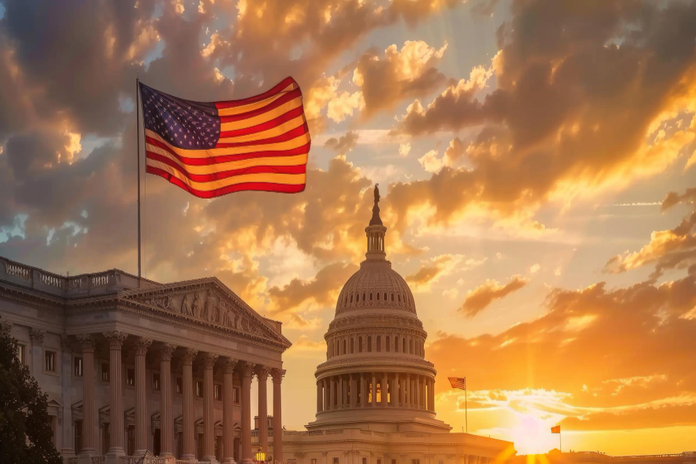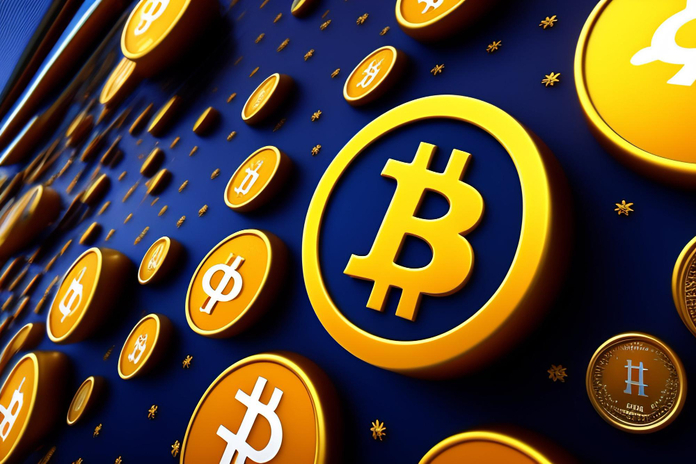This post was originally published on this site

The United States may soon take a historic step in the financial landscape with the introduction of a groundbreaking bill that proposes the establishment of a strategic U.S. bitcoin reserve. This initiative, led by Senator Cynthia Lummis, is designed to position the U.S. as a leader in bitcoin adoption, aiming to boost innovation and maintain the nation’s competitive edge in the global financial arena. The focus keyword for this article is “U.S. bitcoin reserve,” reflecting the bill’s central objective.
The Vision Behind the U.S. Bitcoin Reserve
In a recent discussion on the Wolf of All Streets podcast, host Scott Melker and Dennis Porter, CEO and Co-Founder of Satoshi Action Fund, explored the details of Senator Lummis’ proposed legislation. The bill, officially titled “Boosting Innovation, Technology, and Competitiveness through Optimized Investment Nationwide,” aims to establish a U.S. bitcoin reserve through a series of strategic measures.
The discussion gained momentum when Melker mentioned that former President Donald Trump had recently hinted at the concept of a strategic bitcoin reserve during a speech in Nashville. Following this, Senator Lummis introduced the bill, which seeks to leverage bitcoin as a national asset, giving the United States a potential strategic advantage over geopolitical rivals.
Key Components of the Proposed Legislation
The proposed U.S. bitcoin reserve is structured around five key components:
- Establishing the Reserve: The bill proposes creating the bitcoin reserve through the U.S. Treasury, ensuring that the nation holds a significant amount of bitcoin as part of its financial strategy.
- Purchasing Program: A systematic purchasing program is outlined in the bill, which involves acquiring 200,000 bitcoin annually over five years, totaling one million bitcoin, roughly 5% of the current bitcoin supply.
- Proof of Reserves: To maintain transparency, the bill mandates proof of reserves, allowing public verification of the bitcoin holdings.
- Halt on Bitcoin Auctions: The bill suggests halting the auction of 210,000 bitcoin currently held by the U.S. Marshals, preserving these assets within the national reserve.
- State Participation: An option is provided for individual states to participate in the bitcoin reserve initiative, potentially expanding the program’s reach and impact.
Importantly, the bill proposes funding these bitcoin purchases without increasing the national debt, a crucial aspect that reflects Senator Lummis’s commitment to fiscal responsibility.
Geopolitical and Economic Implications
The potential establishment of a U.S. bitcoin reserve carries significant geopolitical implications. Melker and Porter discussed how the U.S. taking such a bold step could prompt other central banks and governments to consider similar strategies. Porter shared that Satoshi Action has already received inquiries from lawmakers worldwide, intrigued by the U.S.’s legislative efforts and the support from figures like Trump and Robert F. Kennedy Jr. (RFK).
Despite the excitement surrounding the legislative proposal, the price of bitcoin has not shown a significant response. Porter explained that the market is currently experiencing more selling pressure than buying interest at current prices, a dynamic that might shift after the upcoming November elections. He also mentioned the possibility of a “Harris reset,” suggesting that Vice President Kamala Harris could play a pivotal role in advancing bitcoin policy if her administration gains momentum.
Conclusion: A Strategic Leap for U.S. Financial Leadership
The U.S. bitcoin reserve proposal, led by Senator Lummis, represents a significant leap in the nation’s financial strategy. By establishing a bitcoin reserve, the United States positions itself at the forefront of digital currency adoption, potentially gaining a strategic advantage in the global financial landscape. As the bill progresses through the legislative process, its impact on the U.S. economy and its role in the broader geopolitical arena will be closely watched by market participants and policymakers alike.
This article explores the potential impact of the U.S. bitcoin reserve proposal, detailing its key components and the strategic motivations behind it, while examining the broader implications for the U.S. and the global financial system.
Featured Image: Freepik





